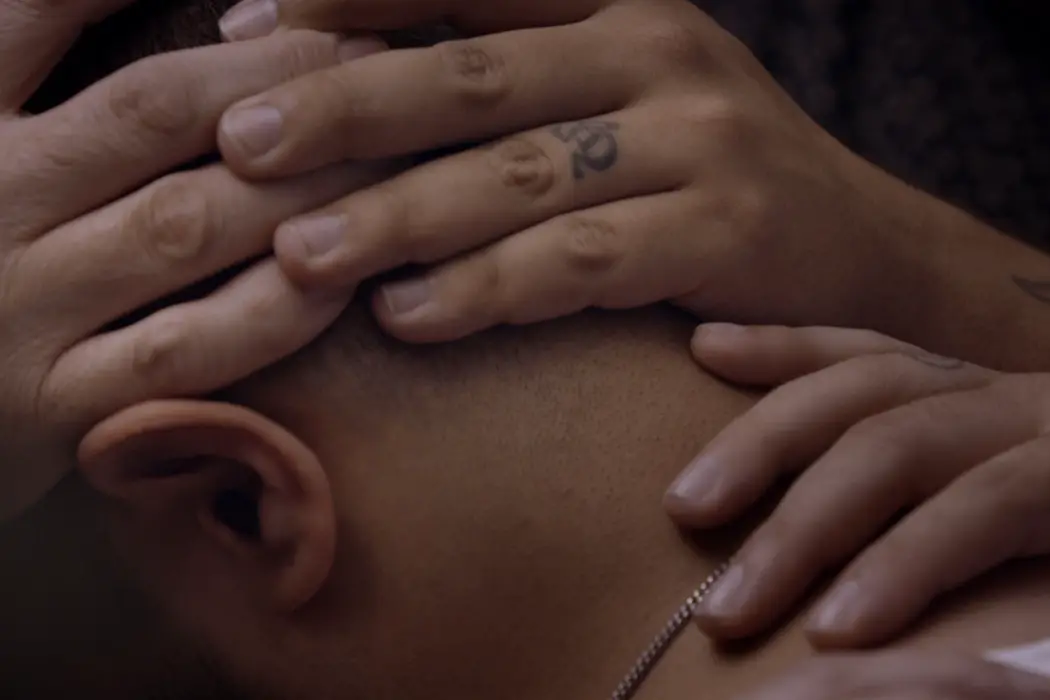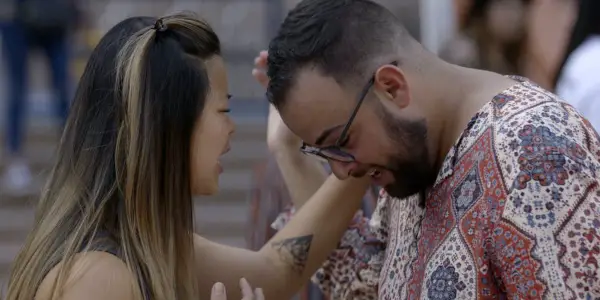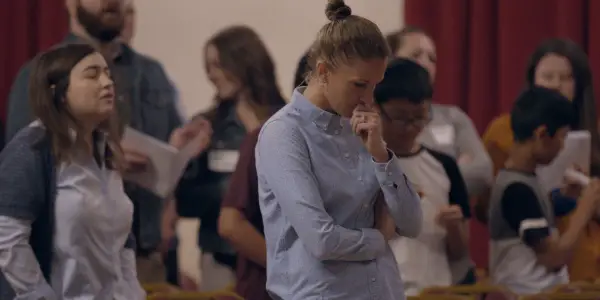Tribeca Film Festival 2021: PRAY AWAY

Stephanie Archer is 39 year old film fanatic living in…
Throughout history, there are moments when a small collective of individuals have the power to create change, altering the livelihoods of others and the navigational paths of future generations. While at times these alterations push forward progressive change, other times it leads to suppression and alienation.
In Pray Away, from director Kristine Stolakis, there is a deep sadness as viewers are presented a cinematic portal into the minds of those who founded, lead, and propagated one of the biggest organizations to develop conversion therapy – bringing mental and emotional damage to more than just themselves. While the documentary feels at times as though it is an excuse for past behavior, it reaches into the depths of salvation, providing an understanding of why.
Re-examining the Past
Pray Away immediately sets the stage for its subject matter, opening with the definition of “reparative” (i.e. conversion) – and the denouement of the practice by all major medical and mental health associations. As the definition lingers for a hair too long, it acts as a weight, driving home the importance of the film and the understanding of the harm conversion therapy has caused thousands over the years.

Transitioning, audiences are first met by the sound of rain, before the definition fades away, introducing us to Jeffrey Mccall. Formally “trapped in the lifestyle”, Mccall was once transgender, converting from his promiscuous ways in order to follow the Lord and the image the Lord has chosen for him. As he asks random individuals if they are in need of prayer and taking a moment to pray with them, he tells his story and the life of sin he had lived before turning to Christ. There is a deep sadness as he sees himself “set free” from the “bondage” he was once subjected to. The sadness deepens as a viewer when you remember he is not alone, many others subjected to various forms of conversion, the camera capturing the fanatical and cult-like depiction of deep faith-based gatherings on his TV screen.
From McCall, viewers are quickly introduced to the snippets of testimony from those the film will focus on – those claiming, “we were doing what we thought God wanted us to do.” In an instance, the documentary takes on the weight of guilt, anger, regret, and accountability, crafting early on the range of emotional turmoil it will struggle to manage. And while at times it shines, other times it falls a little flat.
As you get to know these talking heads, each one describing the role they played in the creation and promotion of Exodus, for some you feel the emotional journey they have transversed. From being gay to being converted to propagating the conversion of others to the rediscovery and embracement of their true selves. And while some stories seem disingenuous, others truly pull the heartstrings, manipulation, and exploitation proving they were just as much victims to the movement they created and promoted.
What was truly fascinating was a commonality that seemed to ring through many of the stories. Trauma and a sense of loneliness brought many together, each denying themselves and alone in their struggles with their sexuality or their identity. In a society and a time that alienated, it was not a matter of religion or atheism, but a question of a safe space to express and understand themselves and others. For many, their loneliness brought them the comforting sense of community that the church could provide.

And where a community welcomed them with open arms, a sense of self became a choice of lifestyle that could be changed. And if they could change themselves, they could extend the same help to those around them. Yet, as their psychology drove these conclusions, their true lack of understanding would do the opposite to so many others. Where many of these talking heads found initial comfort in their roles, those they attempted to help, no matter how earnest they might have intended to be, the lack of true psychological understanding became more harmful.
Conclusion: Pray Away
There is a corruption of self within that Pray Away depicts, not in the sense of denying one’s true nature but in the promotion of something potentially false and harmful for the collective value of a group. While many of these individuals may have begun their roles truly believing they were doing what God wanted, there is a brief recognition from some that they knew what they were doing was wrong – and not in just an aftermath sense.
Pray Away gives a platform for these individuals to tell their story, and even to speak against conversion therapy, providing a chance for forgiveness and salvation. And while some may question the earnestness behind their words, others will break your heart and illuminate the dark with understanding.
Does content like this matter to you?
Become a Member and support film journalism. Unlock access to all of Film Inquiry`s great articles. Join a community of like-minded readers who are passionate about cinema - get access to our private members Network, give back to independent filmmakers, and more.













